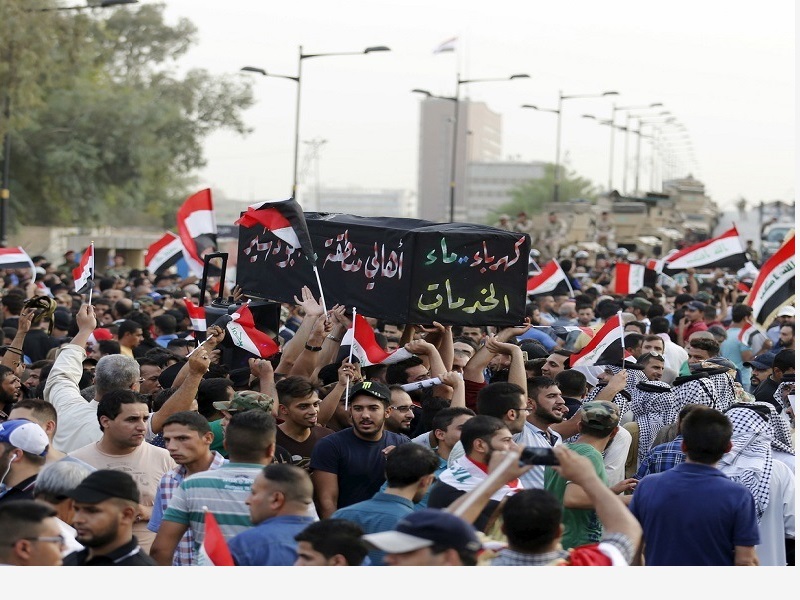
Protesters in Iraq carry a coffin bearing the words "electricity, water, services", 2019.
In the face of regime change, civil war and state collapse, the Iraqi government has remained highly centralised. Moves to delegate more power to the provinces first emerged in 2008 with the passing of Law 21, which codifies the administrative and legal framework for decentralisation. This research project explores the extent to which decentralisation has been enforced and implemented in Iraq, detailing the obstacles and constraints, and offering possible ways forward. Electoral reform at the provincial level is intrinsic to the success of local governance, so the research also explores how political dynamics created by the current electoral framework could be addressed in a manner that enhances the functioning of local governments.
Case studies will illustrate the tension that exists between the centre and periphery over devolution of powers, and discrepancies between legal, administrative and fiscal decentralisation. Ultimately, the research seeks to understand (1) why decentralisation has failed to produce its intended results; (2) the role of international partners; and (3) the competing motivations of political actors.
The research draws on a preliminary hypothesis that the failure of decentralisation is a function of a broader failure of governance linked to state weakness and dysfunction that is compounded by political intransigence at the national and local levels. A set of recommendations will be developed that seek to prioritise policy approaches for both Iraqi decision makers and international actors, focusing on what is realistically achievable over the medium term to ensure that local governance does not deteriorate further.
This project forms part of the Conflict Research Programme, funded by the UK Department for International Development to provide research and policy advice on how the risk and impact of violent conflict might be more effectively reduced through development and governance interventions.
Project Outputs
Research Team
Ali Al-Mawlawi | Principal Investigator
Ali is an independent consultant specialising in political economy and institutional reform. He is co-founder of the Iraq Policy Program, a training and mentoring scheme for young professionals in Iraq.
Sajad Jiyad | Researcher
Sajad is an Iraqi political analyst based in Baghdad and a fellow at The Century Foundation. Sajad’s main focus is on public policy and governance in Iraq.